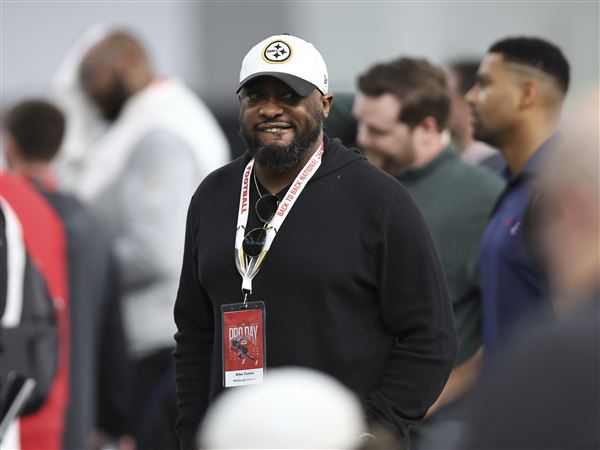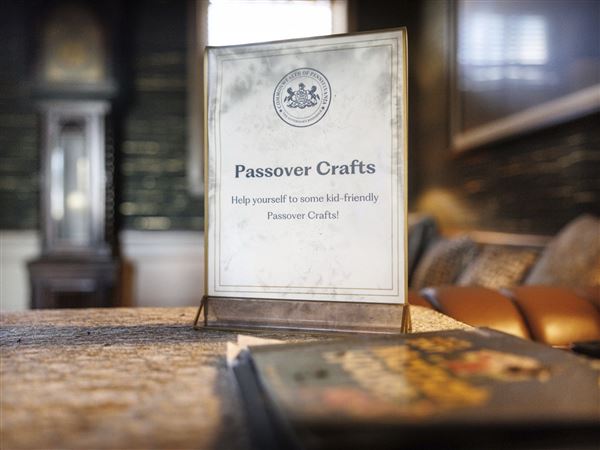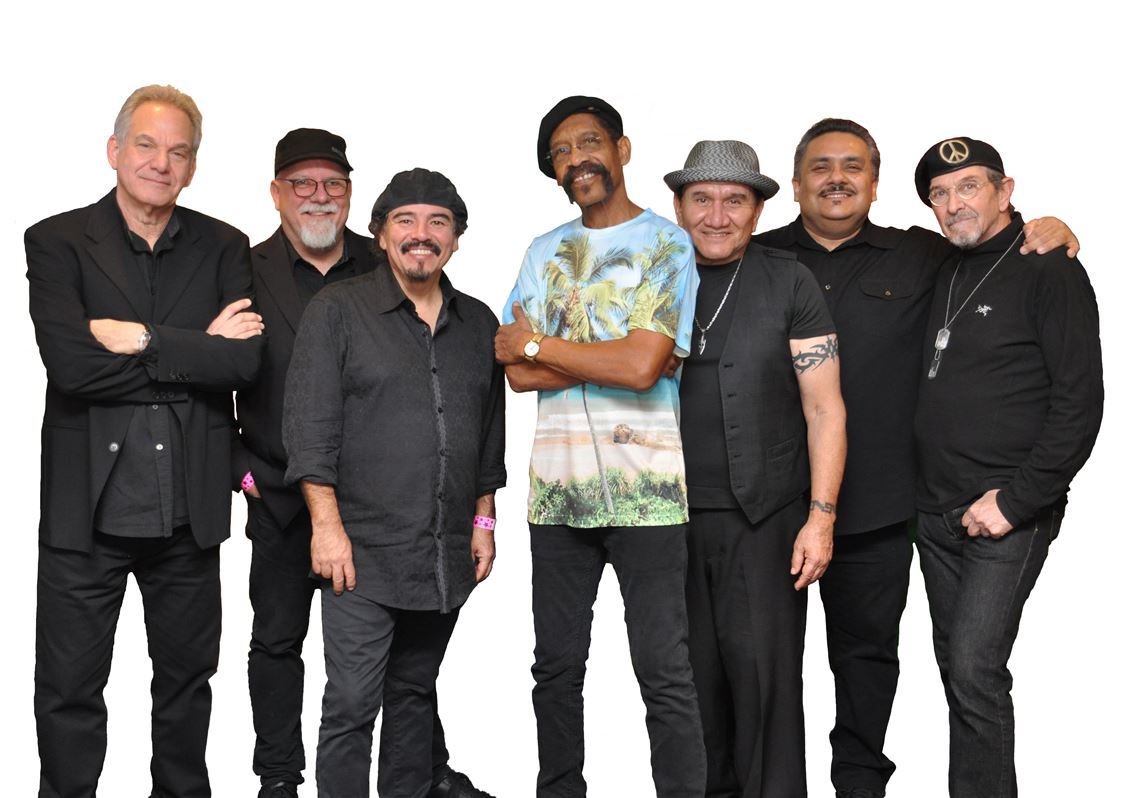Somewhere in the pantheon of trippy songs of the late ’60s/early ’70s, you’ll find “Spill the Wine,” on which Eric Burdon talk-sings about falling asleep in a field of tall grass and dreaming of being in a Hollywood movie where he encounters a harem of women at the hall of mountain kings.
To the scraping groove of the unspeakably funky War, it builds to a head-scratching chorus about spilling wine. That is the realest part of the story.
“I accidentally spilled a big bottle of wine into the recording studio board,” War singer-keyboardist Lonnie Jordan says with a laugh.
Don’t worry, it wasn’t mere clumsiness: There was a very rock star reason behind it.
“Eric was in the booth,” he says, “with a young lady ... and you have to use your imagination there. I laughed and went into shock and was like, ‘Whaaat?’ and I wasn’t paying attention, and I started pouring this bottle of wine into a Styrofoam cup — and that’s a no-no, a Styrofoam cup, they tip over easy — and it tipped over into the board, and the board started smoking and was fried. We were in the middle of trying to come up with something, and Eric busted up laughing, my engineer laughed and, bing, Eric started shouting, ‘Spill the wine!’”
You can hear the young woman speaking Spanish on the recording, and while most people’s ears are fooled into hearing “spill the wine/dig that girl,” Jordan insists it’s actually “spill the wine/take that pearl.”
“The DJs at the time,” Jordan says, “had they known what that lyric meant, they wouldn’t have played it.”
It turned out to be the breakout song for Eric Burdon and War, hitting No. 3 on the charts in 1970. Soon after, War would go its own way and return to the charts many times with such classics as “Low Rider,” “The World Is a Ghetto,” “Cisco Kid” and “Why Can’t We Be Friends?”
Jordan, the lone member of the official War, brings the band to the Pittsburgh International Jazz Festival on Saturday in a free outdoor show Downtown.
Burdon was not the band’s first unusual collaborator. Originally formed in 1962 as The Creators, it was a club outfit called Nightshift when it took on the role of backing Deacon Jones in 1968. It started with a suggestion from the LA Rams star’s bouncer.
“I wasn’t really into football at that time,” Jordan says. “He said Deacon Jones has this nightclub, and all the other players come out there to support him. The girls who were singing behind Deacon Jones at the time were the original Ikettes, from Ike and Tina Turner, and we came in and started playing his shows for him, but at the same time, other people came in and started liking us.”
Among the people dropping into see them were Burdon, whose second incarnation of The Animals had split up in 1968, and record producer Jerry Goldstein, famed for writing such hits as “My Boyfriend’s Back,” “Hang on Sloopy” and “I Want Candy.”
According to Jordan, Burdon said, “Whoa, that’s what I want. I want that band!”
The feeling was mutual enough.
“I saw Eric on ‘Ed Sullivan,’ and that was about the extent of what I knew about him,” Jordan says. “Eric, when he got with us, was able to shine and be himself and be someone he never even knew existed. I thought Eric was really cool.
“The only issue I had was that is too much blues. He loved the blues because he was from Newcastle [England], you know mining, coal city, and, of course, we came out of Compton playing the blues. I’d OD’d on blues, just too much blues. I had to grow up as a kid with a lot of issues living in Compton with people around me having big parties late at night with blues music, and they would always fight, so I would always associate fights with the blues, kind of like hip-hop today.”
He was open to playing anything from calypso to reggae to country-western to augment the blues jams.
It was in Japan where they took on the name War, a pretty militant handle in the height of the hippie era.
“We didn’t have a clue what to call ourselves, and Jerry didn’t either,” he says. “We ended up going to Japan, and we came out of this Japanese sushi bar — first time in my life I ever had sushi or sake, so I was a little tipsy — and we were walking through an alley, behind our management, and [Jerry] turned around and looked at us and said, ‘God! Thank God I know you guys. You guys look like you just came out of a battlefield. That rang a bell in his head and he said, ‘Wait a minute: War!’
“We took the name and made sense out of it: the fact that we were waging war against the war that was going on across our waters and the wars in our backyards back in the day — the riots. That was our motto: to wage war and choose instruments as our choice of weapons.”
It was at another overseas gig, on Sept. 16, 1970, while touring behind debut “Eric Burdon Declares War,” that something else momentous happened. They were all playing a jam session at Ronnie Scott’s Jazz Club in London, and Jimi Hendrix, who had been there the previous night, although not in playing shape, showed up again and sat in with them.
“We did a Memphis Slim song, ‘Mother Earth,’” Jordan recalls, “and it almost put me sleep. Jimi Hendrix, in that moment, did not bring any effects with him, as far as his guitar. We were just playing, plainly, as if we were playing in a hole in the wall. Everything was dry, and we played the same song for a whole hour. And he went back to Mother Earth right after that.”
It was the last public performance for Hendrix, who died the morning of Sept. 18.
Burdon and War went on to release a second album, “The Black-Man’s Burdon,” that December, and then Burdon parted with the band during an early 1971 European tour.
“Eric left on a good note,” Jordan says. “Eric was having issues with his record label at the time, and he didn’t want us to be part of the chaos and the red tape, and bailed on us on a good note and gave us his blessing. He knew we had the fire to continue.”
Indeed, the band did. It released “War” in 1971 and then had its first success, sans Burdon, with the single “Slippin’ Into Darkness” from the second album, “All Day Music,” in 1972. The third album produced the title track “The World Is a Ghetto” and “The Cisco Kid,” its highest charting single at No. 2.
The songs, Jordan says, tended to happen on the fly.
“They’re all jams. We would go an hour and have to change tapes in the middle of jamming. All we did was edit it down because we saw a section of the tape that coincided with a story that we had, so we toyed around, and you’re hearing a tight section of an hour of music.”
Goldstein added a little of his Brill Building writing chops to hits like “Low Rider” — sung by saxophonist Charles Miller, who was murdered after he left the band, in 1980 — and “Why Can’t We Be Friends?,” the joyful title track of that seventh album.
War’s success started to wind down in the late ’70s, and over the next decade the band lost some members, including Papa Dee Allen. But the band’s songs remained so popular and so sampled by hip-hop artists that a compilation album, “Rap Declares War,” was released in 1992. War biographer Bob Ruggiero quoted Snoop Dogg as saying, “Without War, there wouldn’t be no Snoop Dogg.”
Asked if he reaped any of the rewards of those samples, Jordan says, “Oh yeah! You can ask my ex-wives!”
In 1996, War imploded over royalty disputes. Lee Oskar, Harold Brown and Howard Scott, who brought the hard soulful lead vocals to some of the funk hits, left to form The Lowrider Band, which also added War bassist B.B. Dickerson. Jordan, who sang the slower songs like “Summer” and “All Day Music,” stayed and assembled a new version of War.
“I didn’t decide to stay with him,” he says of Goldstein. “I just never left. I didn’t want to leave my fans and I didn’t want to go through any chaotic divorces. I had enough of that with my wives. It was Jerry’s money that brought us here. I didn’t want to go through any change with my fans because if you’re out of sight, they’ll forget about you, and I didn’t want that to happen, and I didn’t want the band to divide.”
While they wait for what should be an inevitable induction into the Rock and Roll Hall of Fame, the new War released “Evolutionary,” its first album in 20 years, in 2014. The Lowrider Band has not released an album.
As for whether they can still be friends, Jordan says, “I am friends with them. I don’t hate. Hate is a disease that can kill you. Hating someone for the rest of your life can cause your body to become toxic. And that’s not me. I have love. I always had love. Any time I see the guys, if we’re up for an award, I’ll see the guys, hug the guys, and I’ll always tell them I love them. Unfortunately, some of the guys have this past anger, and I don’t understand it, but that’s just the way they are.
“We had irreconcilable differences, but like a marriage we made beautiful children, which was our music.”
Scott Mervis: smervis@post-gazette.com.
Pittsburgh International Jazz Festival schedule
Schedule subject to change. Shows take place Downtown are free and open to the public except where noted. More info at pittsburghjazzfest.org.
THURSDAY
8-9:30 p.m.: Makaya McCraven, August Wilson African American Cultural Center
FRIDAY
5:30-7 p.m.: Jazz Crawl, multiple venues
5-7 p.m.: Hugo Cruz, Ninth Street Stage
7-8 p.m.: Butcher Brown, Ninth Street Stage
8-9:15 p.m.: Patti Labelle, August Wilson Center (sold out)
9 p.m.-midnight: Taste of Jazz Party, August Wilson Center
SATURDAY
1:15-2 p.m.: Roger Humphries Art Blakey Tribute, Smithfield Street Stage
2-3:15 p.m.: Warren Wolf & Wolf Trap, Liberty Avenue Stage I
3:15-4:30 p.m.: Joey Defrancesco, Liberty Avenue Stage II
4:30-5:45 p.m.: Keyon Harrold, Smithfield Street Stage
5:45-7 p.m.: Captain Black Big Band with Orrin Evans, Liberty Avenue Stage I
7:15-8:30 p.m.: War, Liberty Avenue Stage II
9-10:15 p.m.: Black Women Rock, August Wilson Center
9-10 p.m.: Tamara Tunie, August Wilson Center
10:30-11:15 p.m.: Paul Jost Quartet, August Wilson Center
SUNDAY
Noon-12:45 p.m.: Alton Merrell Gospel Jazz, Smithfield Street Stage
1:15-2 p.m.: Noel Quintana with special guest Ray Vega, Smithfield Street Stage
2-3:15 p.m.: Nubya Garcia, Liberty Avenue Stage I
3:15-4:30 p.m.: Sean Jones & Gary Bartz “In a Silent Way/Bitches Brew,” Liberty Avenue Stage II
4:30-5:45 p.m.: Christian Sands, Smithfield Street Stage
6-7:15 p.m.: Charles Lloyd, Liberty Avenue Stage I
7:30-8:45 p.m.: Stanley Clarke, Liberty Avenue Stage II
First Published: June 18, 2019, 12:23 p.m.

















